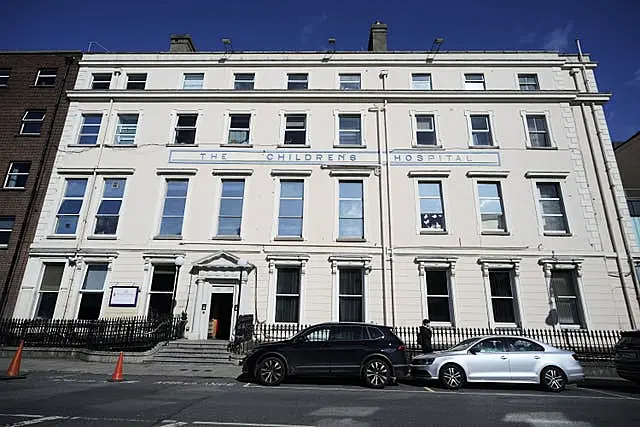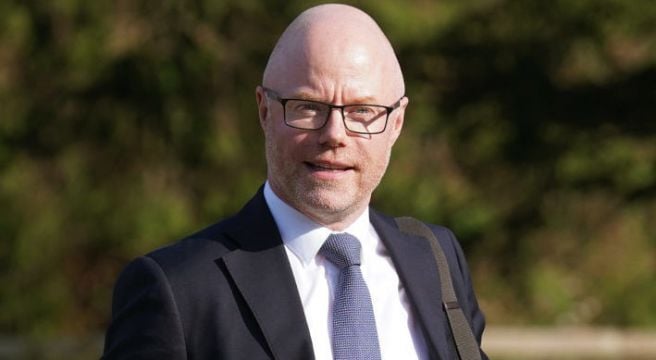There is “full scope” for the terms of reference of an external review into children’s spinal surgeries to be expanded, following input from affected families, Minister for Health Stephen Donnelly has said.
His comments come amid criticism from some patients’ advocacy groups on the terms of the HSE-commissioned review.
Liverpool-based orthopaedics expert Selvadurai Nayagam has been appointed by the HSE to undertake a review that was triggered by concerns over the post-operative outcomes of several children with serous spinal conditions who had been operated on by a surgeon at Temple Street hospital in Dublin.
The use of a spring-type device in some surgeries at the Children’s Health Ireland (CHI) hospital is also being examined.
Addressing the Dáil, Mr Donnelly said: “I want to start by acknowledging the distress and anxiety that this whole episode is causing to the patients themselves involved in these reviews.

“These are girls and boys, young women and young men and, of course, their parents and their families.”
The minister said he was “absolutely determined” to fully answer legitimate questions of families waiting on services at Temple Street hospital.
The Health Minister also offered his “deepest condolences” to the parents and family of 10-year-old Dollceanna Carter who died last year.
Her case file was among 19 examined in the reviews.
Mr Donnelly said no-one can be in any doubt of the “incredible loss suffered by all those who loved this beautiful child”.
The minister said the use of non-CE marked springs as implants has caused great concern, but added that this was among issues which have not yet been fully clarified and investigated in the initial reviews.
Providing a timeline to deputies, Mr Donnelly said his department was notified of two serious patient safety incidences at the hospital in November and that an internal review into surgical outcomes had been initiated.
An external review was also commissioned and this was completed in July.
Both the internal and the external review found that the rates of complication were higher than internationally expected.
Since then, Mr Nayagam has been appointed to lead a further, wider external review which will also consider the use of the springs in three surgeries which were reported by CHI in August.
During a session on the patient-safety concerns, the health minister was told that “this is one of the most tragic scandals” that politicians had seen.
Sinn Féin health spokesman David Cullinane said: “At the heart of this scandal are 19 children and their families who have been traumatised, who have been harmed, who have been wronged and sadly in one case, a child who has passed away.
“A family which will not be whole again, and many other families who will carry the harm and trauma of what happened to their kids with them for many years to come.”
Mr Cullinane said these families need to be placed at the centre of the State’s response, criticising the minister for “excluding patient advocates and the parents of children” from the drafting of terms of reference into the review.
He also called for the initial reviews to be published in full.
Speaking about the surgeon involved in the cases, Mr Donnelly said: “A specific complex procedure known as kyphectomy was paused by the surgeon and indeed CHI last November, the November of 2022.
“Patient safety protective measures were put in place by CHI in line with consultant contract. This includes measures such as working under additional supervision and restricting certain clinical duties.
“The surgeon involved in all of these incidences and concerns raised to date has now stopped all clinical practice and has been referred to the Medical Council.”
Mr Donnelly said all patients affected by the concerns raised, as well as all those awaiting surgery with the surgeon, have had their care transferred to other clinicians.
He said he is open to meeting patients and families directly, adding his first would be on Wednesday.
The minister said the new external review is “intended to go as deep and as wide as necessary” including examining if there is a wider group of patients that may have been affected.
Mr Donnelly said: “The reviews also raise further questions about aspects of culture and governance that require a deeper examination.”
He said the drafted terms of reference for Mr Nayagam’s review are intended to be further defined by him as he “engages fully in the work”, including meeting patients and families.
“The first and most urgent objective is to look at the practice of the surgeon concerned and determine if any wider review is required in order to provide a risk assessment and assurance on core patient safety issues.
“The other objectives of the review relate to wider issues including culture and governance within the paediatric orthopaedic service and to review the current and future delivery of the service and make any recommendations as he sees fit.”







